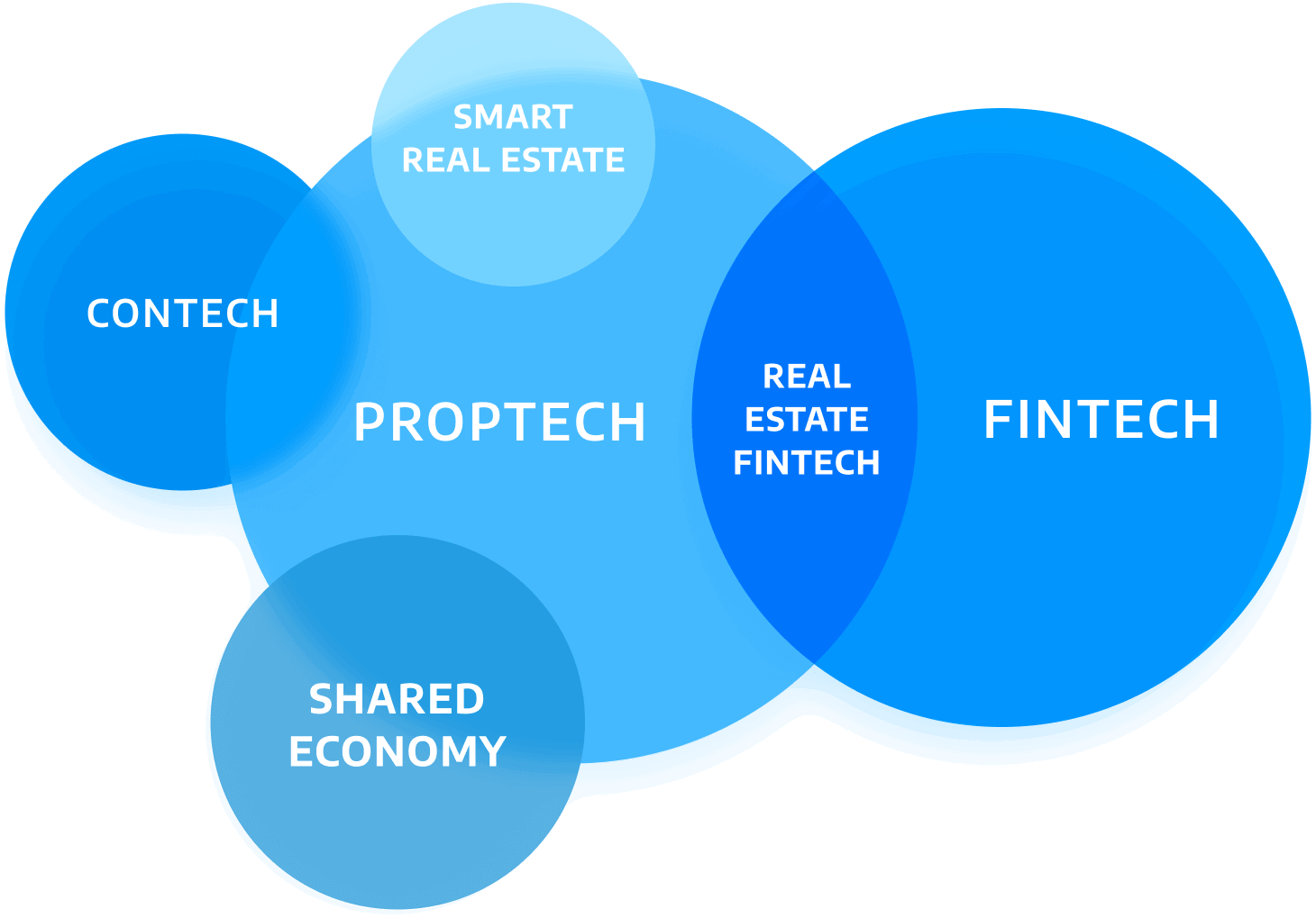Transforming real estate in the era of the 4th industrial revolution


· 7 min read
In a constantly changing and evolving context, the real estate sector is in a whirlwind of transformations driven by a series of interconnected factors. Inflation, regulatory changes, rate fluctuations, and currency volatility have woven a constantly changing backdrop, capturing the attention and efforts of the protagonists of this scenario. While these immediate concerns demand agile responses and informed decisions, underlying this outlook is the even more monumental challenge of the fourth industrial revolution.
Real estate needs to adapt in a world where physical and digital borders are fading, technology advances at breakneck speed, and global connectivity has become the fabric that unites and transforms societies.
This revolution is not simply a transition towards digitalization; it is a metamorphosis that affects the very essence of how we inhabit, produce, and manage our cities. The intersection of emerging technologies such as artificial intelligence, blockchain, the Internet of Things, augmented reality, and data analytics unleashes disruptive innovation that redefines traditional real estate paradigms.

The term "real estate" has deep roots in the Greek concept "oikos", which refers to the "big house" that houses everyone. This everyone's house encompasses the physical aspects of the habitat and the complex relationships established between people and their environment. This interaction between people and living space reflects the essential core of real estate. In this sense, real estate is not merely the construction of buildings but the management of an environment where lives develop and intertwine.
The notion of "oikos" is at the root of ecology and economics. Ecology involves a deep understanding of the big house and the responsibility that falls on those who shape and manage the habitat. On the other hand, economics originates in managing everyone's house, addressing how to satisfy human needs by allocating scarce resources.
Historically, economics was rooted in the notion of scarcity and materiality. Wealth was measured by the accumulation of material goods and the distribution of limited resources. However, in the current era, marked by the explosion of information and technology, the economy has evolved profoundly. Economic fundamentals have changed from the material to the intangible. Information, data, and creativity are the pillars supporting value generation.
Society moves beyond an economy based on physical objects and scarcity towards an economy based on innovation, information, and abundance. In this new economy, technology and creativity are the catalysts for value. Network dynamics and global interconnection have redefined how we create, share, and use resources.
In this context, real estate cannot remain immune to change. Although construction remains crucial, technological advances transform how we conceive, design, build, and manage habitats. New materials, sustainable construction methods, renewable energy, and computer-aided design processes shape the sector's evolution.
The world of real estate is immersed in a profound transformation that encompasses multiple interconnected dimensions. This transformation manifests itself in four crucial areas: changing scenarios, evolving behaviors, new actors involved, and how the game's rules are being redefined. In this era of accelerated change, the mere evolutionary process is not enough; It is the disruption that makes the difference. And this disruption does not lie in modifying the answers but in questioning the questions themselves.
Changing scenarios and evolving behaviors: Real estate scenarios are in constant flux. Economic, political, technological, and social factors interact in new and unpredictable ways. Consumer behaviors are also evolving rapidly. Younger generations, technology, and the demands of an ever-changing society are redefining housing, work, and lifestyle preferences. These changes challenge how spaces are designed, built, marketed, and managed.
New actors involved and evolving rules: The dynamics of real estate are being reconfigured by the entry of new actors and the redefinition of roles. Tech startups and PropTech companies are revolutionizing how construction, investment, and property management challenges are addressed. Furthermore, government regulations and policies constantly change, which implies adapting to new regulatory frameworks.
The change in the forms of change: Traditional ways of changing and evolving are redefined. Linear and unidirectional development models are being surpassed by more collaborative approaches based on co-creation. Innovation is not limited to a single source; It emerges from the synergy between diverse actors, capacities, and perspectives.
Questioning paradigms and creating the "other real estate": In this context of constant and accelerated change, persisting in conventional approaches is insufficient. True innovation questions established paradigms and challenges assumptions. Disruption, radical transformation, emerges from new questions and unexplored angles.
Creating an "other real estate" stems from embracing this mentality and thinking differently. It's not just adopting new technologies but fundamentally reimagining living spaces' creation, management, and experience. This entails exploring business models, fostering collaboration, adopting sustainability, and creating value for changing societal needs.
Technology adoption is a prevailing need in real estate. However, its implementation is more than incorporating technological tools. True innovation in real estate emerges from a transformation involving reimagining reality through strategic technology application and redefining management models. At this intersection of traditional and disruptive, we merge two worlds: cautious conventional real estate and the rapid 4th Industrial Revolution. Success lies in recodifying methods for building and inhabiting cities and adapting to the 21st-century landscape.
Digital transformation beyond technology: Adopting technology in real estate goes beyond merely incorporating digital tools. It's about embracing a mindset of change and leveraging technology as an enabler for transformation. This transformation ranges from how we design and construct buildings to how we market and manage them. True innovation occurs when these digital tools trigger a systemic change in our thinking about the human habitat.
The challenge of merging two realities: During technology adoption, we face a crucial challenge: plunge real estate's traditionally slow pace with the industry's revolutionary acceleration. Real estate's design, construction, and management stages tend to be meticulous and detailed, in contrast to technology's fast-paced and adaptable nature. This convergence between traditional and modern requires an approach that integrates technology and reconfigures processes to take advantage of the speed and agility it offers.
Re-coding methods for the 21st century: The key to navigating this revolution lies in recodifying our methods of city-making. This involves a change in mindset and a willingness to leave behind outdated practices that no longer align with the changing needs of modern society. The digital transformation of real estate goes beyond adopting cutting-edge tools; it is about creating new business models, embracing collaboration and co-creation, and building more comprehensive and personalized experiences for the people who inhabit and use the spaces.
The vision of a sustainable housing future: The digital transformation of real estate is not only a technological evolution but a movement toward creating a more sustainable, intelligent, and inclusive housing future. Collaboration across sectors and the adoption of PropTech solutions can drive the creation of more connected and resilient communities.

Amid the exponential change that characterizes our times, the real estate sector must redefine its approaches and embrace an exponential response. This response is not based on incremental adjustments but on radical change that extends across three key dimensions: what, how, and why.
At the center of the exponential response is the collaborative economy. Collaboration and co-creation are fundamental to generating exponential responses. Network and cooperation with other sector actors allow us to share resources and knowledge, creating synergies that multiply results. Joining forces reduces costs and increases impact, creating a dynamic where the whole exceeds the sum of parts. The collaborative economy propels the shift from incremental solutions to exponential transformations.
Exponential transformation necessitates redesigning management models and technology integration. The premise is an “always in beta” mentality, where approaches and models constantly evolve. Innovation isn't a one-time event but a continuous process. Incorporating technology isn't superficial but a profound reconfiguration of operations. Embracing technology as a transformation tool accelerates the adoption of exponential responses.
The exponential response extends beyond efficiency and innovation. It's about creating a sustainable impact on our communities and environments, focusing on economic, social, and environmental factors. Our actions and projects should transcend mere financial gain. Promoting initiatives with a positive impact in these three dimensions creates sustainable solutions to challenges. The exponential response drives an equitable, healthy, and prosperous housing future.
The exponential response in real estate is not just a strategy but a mindset and a way of approaching challenges and opportunities. We can transcend conventional approaches and achieve exponential impact by weaving collaborative networks, redesigning management models, and strategically adopting technology. The key is to embrace constant evolution, collaboration, and value generation including the financial approach.
illuminem Voices is a democratic space presenting the thoughts and opinions of leading Sustainability & Energy writers, their opinions do not necessarily represent those of illuminem.
illuminem briefings

Architecture · Corporate Governance
illuminem briefings

Architecture · Carbon Capture & Storage
illuminem briefings

Corporate Governance · Adaptation
Interesting Engineering

Carbon Capture & Storage · Architecture
World Cement

Circularity · Architecture
The Guardian

Climate Change · Architecture